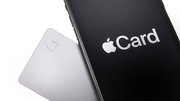Article
MasterCard's dirty secret
You're unloading your grocery cart and your hands are full, so you stick your credit card between your teeth. Ew.

March 29, 2013
In a press release recently, MasterCard touted an Oxford University study that found 26,000 bacteria on used euro banknotes — and 2,400 on new ones, even.
"The bank notes we tested harbored an average of 26,000 bacteria, which, for a number of pathogenic organisms is sufficient for passing on infection," the press release quoted Oxford Professor of Engineering Science Ian Thompson as saying in a statement about the research.
MasterCard has kept up a running theme lately, pointing out the ills of filthy dirty lucre. What they've not uttered a peep about is the creeping crud on our credit and debit cards.
Coliform-covered cards
In a British study not touted by MasterCard, researchers from the London School of Hygiene and Tropical Medicine swabbed the hands, money and credit cards of 272 people in Birmingham, Liverpool and London.
When the swabs were cultured, researchers found that 8 percent of the cards were infested with fecal bacteria, compared with 6 percent of the bank notes. Dirtiest of all? Peoples' hands, at 11 percent. In each case, there was "as much fecal bacteria on them as you would find in a dirty toilet bowl," according to Huffington Post.
The European Cleaning Journal cited yet another study in which Dr. Ron Cutler, senior lecturer at the school of biological and chemical sciences at the University of London, analyzed 200 banknotes and 45 credit cards. He found that 47 percent of the credit cards sported high levels of bacteria — including E.coli and Staphylococcus aureus — as opposed to 26 percent of the banknotes.
In a grant-based study cited by CreditCards.com microbiology students at Florida's St. Petersburg College found that half of all credit cards sampled at local malls, stores and hospitals tested positive for methicillin-resistant Staphylococcus aureus, better known as MRSA. Full disclosure: Six in 10 dollar bills tested also contained traces of MRSA.
Mobile microbes
Before mobile payment enthusiasts get all exercised about how these studies make a toilet-watertight case for contactless NFC, it should be mentioned that the London School of Hygiene found as much fecal bacteria infestation on mobile phones as they did on currency, (though still less than on credit cards).
The Wall Street Journal had HML Labs conduct tests on eight randomly selected phones from a Chicago office. All showed "abnormally high" numbers of coliforms, which are associated with fecal contamination. The bacteria numbered between 2,700 and 4,200 units. "In drinking water, the limit is less than 1 unit per 100 ml of water," the Journal reported.
"The results are pretty bad," said Dr. Donald Hendrickson, president of HML Labs, professor emeritus of medical microbiology at Ball State University, and master of understatement.
A germ of truth
MasterCard would be happy for us all to believe that germs simply prefer cash to credit. Or that they just slide right off plastic cards because they're slippery, right? Or that people who use cash are dirtier than people who use plastic.
But the simple truth is that if cash is dirtier than credit cards, it's because cash is used far more often. And isn't that what's really chapping MasterCard? If plastic were used more, it'd be even dirtier, but we wouldn't be reading card association press releases about it.
In fact there's no reason why cash can't be as squeaky clean as June Cleaver's kitchen floor. You can run it through your washer and dryer (it won't warp or die). You can press your freshly laundered cash with a 500-degree iron to kill any straggling Staphylococcus.
And then, with your germy hands, put it back in your germy wallet next to your germy MasterCard. Where it will again become infested with bacteria.
The problem isn't dirty money, it's dirty hands.
And the solution isn't less cash. It's more soap.
photo: prep4md (e-coli bacteria)













